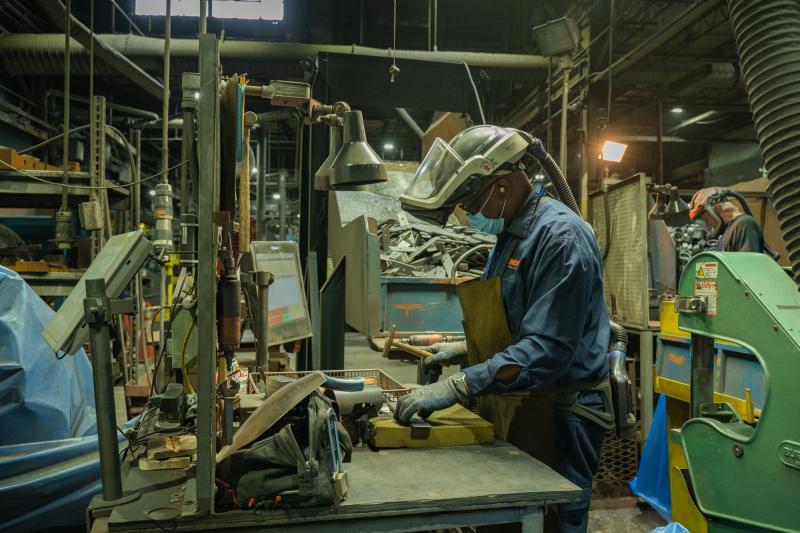Last month, we delved into the steps of creating a ductile iron casting — an involved and nuanced process requiring specialized foundry equipment and facilities. But all of that means nothing without skilled foundry workers to bring it all together, ensuring a smooth, safe, and successful operation. Foundry jobs can be demanding, but they can also be rewarding, as each worker plays a role in transforming an initial concept into a tangible and useful product.
There's a lot that needs doing, so let's take a look at what needs to be done.
Foundry jobs and descriptions
Production roles
The foundry floor is the beating heart of the operation, with the bulk of ductile ironworker jobs involved in production.
Patternmakers transform engineering blueprints into a three-dimensional pattern with a variety of tools and machines. Patterns are usually made from metal, but in rarer instances may be prepared from wood. While this position does not require a college degree, it does require the dexterity and precision of a craftsman.
Molders use those patterns to create sand molds into which molten metal will eventually be poured. If cores are being used (for castings with inner cavities), coremakers, core oven tenders, and core setters will ensure they are molded, baked, and set properly.
Furnace operators and pourers are responsible for melting and pouring molten metal into the prepared sand molds. Safety training and attention to detail are of the essence here as errors can be fatal. Urick Foundry takes its working conditions very seriously, and is regarded for its award-winning safety culture.
Once the castings are cooled, shakeout workers remove them from the sand molds and they are taken for cleaning and finishing. Employees in this department will use a variety of tools and equipment to remove excess material and smooth away imperfections, ensuring the finished casting is as close to spec as possible.
Quality assurance
Lab technicians and quality assurance workers (aka casting inspectors) test for defects in the ductile iron castings before they are delivered to the customer, machined or sent away to be further fortified by austempering.
Facility and maintenance roles
There are a lot of moving parts in foundry production and equipment malfunction or failure can prove both an inconvenience and a liability — operations may be stalled, products may be compromised, and/or ironworkers may be injured on the job. Maintenance mechanics and electricians are called upon to assure everything works as intended and quickly respond to issues when they don't (trade school certification required). A facility manager oversees the day-to-day operations of the foundry (this position requires a degree in facilities management).
Outlook for foundry jobs
In the wake of pandemic-related shutdowns, consumer demand is high and consequently so is the need for workers in the foundry industry. At Urick, we have aggressively stepped up our recruitment and hiring initiatives, offering signing bonuses, increasing base pay, improving our step process to get to higher pay rates, and nearly tripling shift differential. Between this, best-in-industry safety, and competitive health plans and PTO packages, ductile ironworker jobs are perhaps more attractive than they've ever been.
Work with Urick
It is foundry workers make that the foundry, and make the products upon which we stake our name and reputation. At Urick, we believe that by empowering our employees, we empower productivity (lead times of 6-8 weeks for non-core jobs), innovation, and quality that transcends our competitors. If you think foundry work fits your mold as a rewarding career, we'd like to talk to you.



